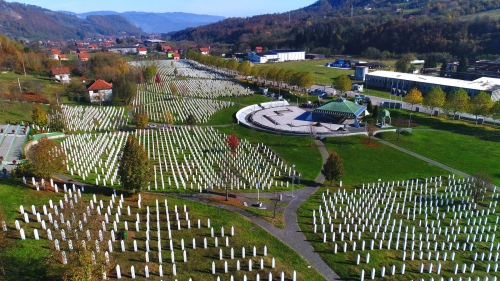Hizbullah: Israel's Worst Enemy is Still Roaring
No message could be clearer that the one sent by Hizbullah to Israel on Dec 30 when a member of the movement blew himself up near an Israeli military compound.
Although the military operation was exclusively aimed at Israeli troops, Lebanese civilians were reportedly hurt by the powerful explosion caused by 220 pounds of TNT. Hizbullah, on the other hand, spoke of several Israeli army causalities, rejecting the Israeli claim that only one of their troops was hurt. Hizbullah's message to Israel, however, was fully delivered, regardless of the real number of bombing victims: the fierce war of the south shall continue until the last Israeli solider departs the Occupied Lebanese Zone.
Several factors have urged many to believe that the bloody relationship between Israel and the Lebanese resistance movements (manifested in Hizbullah) will encounter a substantial change of patterns and strategies.
The foremost leading factor in this transition is the recent resumption of Israeli-Syrian peace talks in Washington. Some had argued that if Hizbullah serves Syria's interests in Lebanon by keeping constant pressure on Israel, it is possible to conclude that Syria's agreement on peace with Israel should lead to a major halt in Hizbullah attacks on Israeli troops. The argument was evidently wrong, for Hizbullah appears to be very determined not to slow or soften its resistant war against Israel's occupation.
The second factor is the Israeli release of five Lebanese fighters, and the transfer of those fighters to Beirut through Germany. The release, which came to a cheerful end on Sunday, Dec 26, was followed by the release of the remains of several of Hizbullah's fighters, who were killed in clashes with Israeli troops in recent battles. Although Hizbullah leaders and other resistance movements cheered for the freed fighters and welcomed them with tears and flowers, they vowed to fight Israel until the end.
The Israeli action, which was viewed as a friendly gesture, was in fact a political tactic aimed at strengthening the pro-peace argument among divided Israelis. Israeli Prime Minister, Ehud Barak, seemed confident in his government's capabilities in negotiating peace on two fronts at once. What Barak failed to consider in his pledge, is the fact that Israel must handle two peace talk fronts, and one costly war. Barak, who overlooked the possibilities that Hizbullah may not rest until the talks are over, is now facing growing dissatisfaction with regard to his peace approach, which so far is proving fruitless. Barak's miscalculations are certainly hurting his image among Israelis, and perhaps causing him to loose confidence among Syrians regarding the containment of Hizbullah.
The message sent to Israel by the Islamic resistant movement was indirectly sent to Syria as well. Syria who urged the resistance to ease up on their activities against Israel was stunned to hear Hizbullah leaders bluntly declaring, talks or no talks, that the war shall go on. In fact, the same firm declaration was reemphasized in a statement released by Hizbullah where it claimed responsibility for the suicide bombing. The statement clearly declared that the mission was "designed to serve notice that the Islamic Resistance will continue its bloody struggle until the occupation is defeated."
It is evidently clear that the breakdown of Hizbullah will not be an easy task for Israel to achieve just by making a peace deal with Syria, or even Lebanon for that matter. The movement is repeatedly demonstrating a great level of independence over its decision making and the fate of its activities. That independence, which Hizbullah currently possesses, however, will become hard, if not impossible to keep once the negotiating parties agree on a precise security arrangement in the South. Hizbullah has conquered it first challenge by resuming its fight in the south despite the peace talks. Yet a consequential question constitutes one of Hizbullah's greatest challenges yet: what new strategies will the movement adopt in its struggle against Israel if the peace agreement, foreseen in the near future, fails to meet their political aspirations, and to satisfy their cause, which they have fearlessly fought to serve?

















